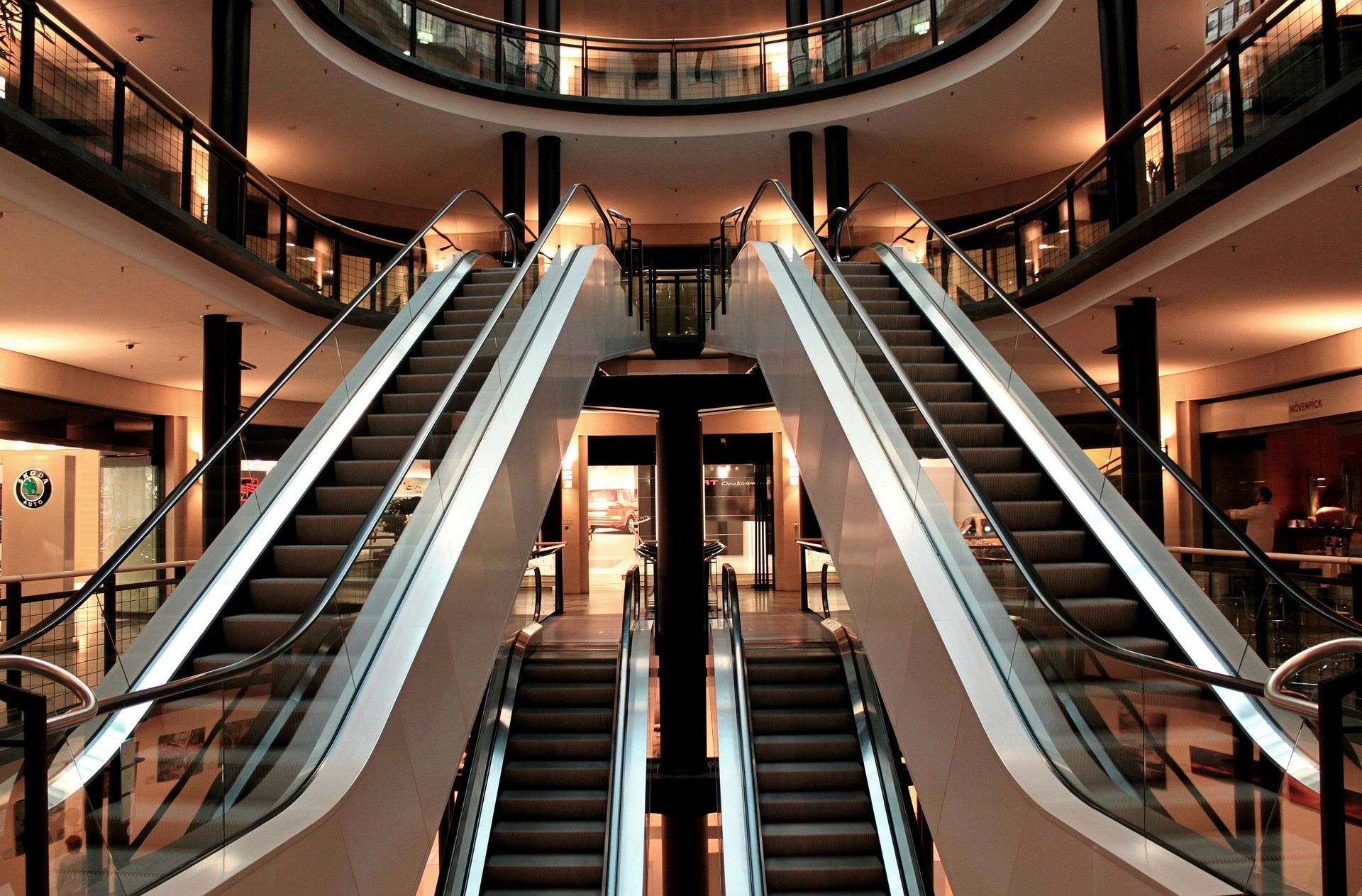Fire Safety In Shopping Centres

The statistics for shopping centre fires are interesting. Retail fires account for roughly 10% of all ‘large loss fires’. Of those, around 2% are in shopping centres. So, at first glance, the numbers are in your favour. However, when you dig deeper, the picture changes. Around 4/5 of these fires are deliberate; a far higher figure than the general trend for retail. Hence, it pays to invest in fire safety in shopping centres.
Be aware of your fire safety responsibility in shopping centres
It’s easy to get excited at the prospect of a new venture. You have invested time, money and effort in ensuring that it looks perfect, the shop is clean and tidy, and the stock is perfectly arranged on the shelves.
Your staff are well presented and well trained. You have enlisted the services of a local celebrity to carry out the grand opening to aid publicity. All it needs now is for the public to come and start shopping.
But what about an inspection by the centre management? Have you forgotten anything? Did you know that the provision of fire protection lies with you as the proprietor? Or did you assume that the shopping centre would look after that side of things? After all, they are the building owners, so it’s not unreasonable to expect this.
Shops will have to prove that they are compliant to the centre management and this may involve an inspection on all health and safety matters. It depends on the individual centre as to the extent of this.
Are you legally compliant?
Shopping centres are responsible for general fire protection in communal areas of shopping centres. This includes service yards.
However, most will pass the responsibility for the shop area to the shop owners / occupiers. This includes the storerooms belonging to the shops. Normally, as soon as you enter the confines of the individual shops the responsibility passes from the shopping centre to the individual shop. This will form part of your lease and you will be responsible for ensuring compliance.
So, what do you need to do to comply?
Carry out a Fire Risk Assessment
The law requires that a competent person carry out a Fire Risk Assessment (FRA) on your behalf. This rule applies to all building owners and occupiers. What’s more, if you employ five or more people, you must hold a written record of the FRA on file. The FRA evaluates your premises and makes recommendations in the following areas:
- What are the risks?
- Who is at risk of harm?
- How can you alleviate or, where possible, eradicate the risks altogether?
- Would fire fighters be safe if they had to enter your premises?
- What provisions can be made for business continuity in the event of an incident?
Maintain a current fire safety logbook
A logbook is used to keep records of your efforts to co-ordinate and maintain fire safety. Fire safety in shopping centres is essentially no different to any other form of premises. Everything you do should be accurately recorded. Anyone who carries out regulatory testing (be it you or a contractor) should record the results in the log book.
The logbook is a useful tool for you and will enable you to demonstrate your commitment to fire safety legislation.
Install and maintain fire extinguishers
It’s against regulations to fail to provide portable fire extinguishers. There are many different types so it pays to get independent, accredited advice when choosing the right equipment for your retail outlet. They will need to meet regulatory and business risk requirements.
Once installed, you’ll need to service them regularly, which MS Fire Sytems does. All fire extinguishers should be serviced annually to ensure they meet current Zambian standards.
Fire alarm maintenance
Modern shopping centres will have a central system that operates throughout the common areas of the centre. However, you will probably have your own fire alarm system that operates within the confines of your retail space.
It is your responsibility to arrange the service and testing of your system and keep records in your log book. You must comply with the servicing requirements laid down by the shopping centre management policy. Most shopping centre management will have detailed the requirements for maintenance of equipment, particularly where the shop system is attached to a central system, such as a fire alarm or sprinkler system.
You must also liaise with the centre management regarding testing times and requirements. This helps to avoid creating any issues with the operation of the centre.
Emergency lighting maintenance
Emergency lighting can be a life-saver if power supplies to your lighting circuits are cut during a fire. They help protect you and emergency service personnel.
As with fire alarms, you’ll need to maintain your own equipment and keep records. You’ll also need to comply with the centre’s servicing requirements.
Fire sprinkler maintenance
If you do have sprinklers fitted in your outlet, be aware that the same rules apply as for fire alarms.
Fire safety signage
In the event of an incident, the provision of the correct fire signage will aid escape. It will also assist with the use of fire protection equipment. This will save vital minutes in safely evacuating the shop.
Remember, you may be familiar with your layout, but members of the public in your shop won’t be. They should be able to be led to their nearest escape route by accurate and well positioned signage. Wherever you are within the shop, you should be able to see a fire exit sign.
PAT & fixed wiring testing
You will need to ensure that all your electrical systems are checked and comply with current regulations. The fixed wiring may have already been checked by the centre management, but you need to liaise with them to ensure it has.
Fire training
Last, but not least, training! You should train yourself and your staff on the evacuation procedure in place within your shop. You’re also expected to have knowledge of the policy for the centre as a whole.
Furthermore, do you know how to use your fire extinguishers? It’s possible that you might need to use one to help people escape. Make sure you know which extinguisher to use and how to use it.
Fire protection is essential to the safety of your shop, your employees and your customers. So, it’s imperative that you comply with the law and the requirements of your insurance company. This is not only for your own protection but also for the continuity of the business.
For practical advice and assistance on any of these points, please get in touch and we’ll be happy to talk you through the finer points of fire safety in shopping centres.


